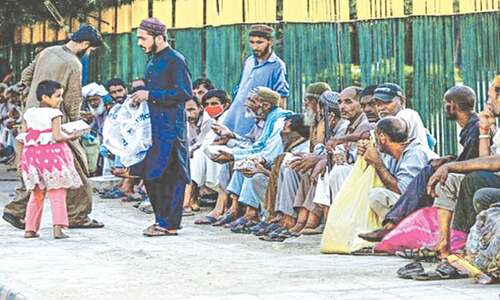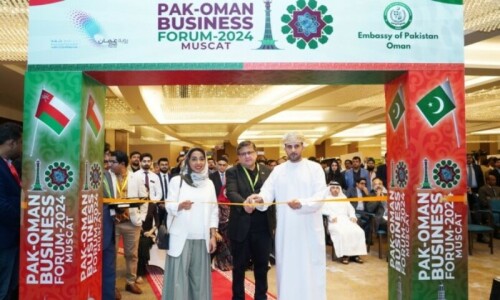South Korea
Over the past four decades, South Korea, Asia’s fourth largest economy, has achieved incredible growth and global integration to become a high-tech industrialised economy. In 2004, it joined the trillion-dollar club, and is currently the world’s 12th largest economy.
Though hit hard by the global economic downturn beginning 2007-08, it quickly rebounded in subsequent years, recording 6.3pc growth in 2010. The economy experienced sluggish growth between 2012 and 2013 because of global market slowdown. It currently faces slowing growth and increasing challenges, mainly in implementing labour market reforms and addressing youth unemployment, which is near a record high.
The economy’s long term challenges include a rapidly aging population, inflexible labour market, dominance of large conglomerates, and heavy reliance on exports, which comprise about half of GDP. In order to solve chronic and structural problems and make a fresh leap as a major global player, the Korean economy needs a major surgery.
The government took a year to unveil its economic goals, which included lifting employment and personal incomes, and containing heavy and growing household debt. On the first two goals, progress has lagged the targets, while household debt has grown.
The government response to two crises– the sinking of the Sewol ferry last year and outbreak of Middle East Respiratory Syndrome early this year – were slow and inadequate, and exacted a heavy toll on the economy. The sluggish growth is likely to continue to hamper South Korea from achieving $36,000 per-capita goal.
A local economic research institute recently forecast that the country’s per capita income would decrease from $28,101 last year to $27,600 this year, if the value of the South Korean currency remained weak against the dollar.
The economy expanded 2.4pc from a year earlier in the three months to September, compared with 2.2pc in the prior quarter after plunging in last-quarter 2014, but it still face challenges such as a slowing China and poor domestic tax revenue.
Growth is by some estimated to drop to 2.5pc this year, which would be the third-worst performance since the 1997/98 Asian financial crisis. The market’s consensus forecast is for 2.8pc growth. The IMF lately cut its forecast for this year to 2.7pc which is below the more than 6pc growth rates seen five years ago. The IMF also lowered its projected South Korean economic growth rate for 2016 from 3.5pc to 3.2pc.
The BoK has also shaved its economic growth forecast for this year to 2.7pc, from the 2.8pc it had predicted earlier. It is the fourth reduction since the start of the year, when it had estimated 3.9pc growth.
Korea is a highly export-dependent economy with 60pc of outbound goods heading to emerging markets. Chief among them is China, which is going through its own economic slowdown, crimping demand for Korean products. Exports, the main growth engine of Asia’s fourth-largest economy, have declined every month so far in 2015, falling by 8.3pc in September from a year earlier, due to slumping global trade, and currency fluctuations. South Korea recognises the importance of structural reforms and investment in facilitating an economic recovery.

Hong Kong
Hong Kong’s economic growth continues to rely on mainland tourism, low interest rates and trade. In the first half of the year, the number of visitors increased only 2.8pc over the period of 2014. Hong Kong also fell behind South Korea, Taiwan and Japan among the Chinese tourists’ top-10 outbound destinations.
The tourism sector is in genuine need of consolidation to regain attractiveness, as Hong Kong is presently far more expensive compared to 2009 and 2003. The economy is expected to maintain last year’s growth of 2.5pc during 2015 and 2016, with the jobless rate staying steady at 3.5-4pc next year.
The Hong Kong dollar is pegged to the US dollar, and a rally in the greenback has made Hong Kong exports less competitive. Amid stagnation in the US, Europe and Japan, Hong Kong’s exports earnings fell 1pc on a year-to-year basis with domestic exports falling 15pc in the first eight months of 2015.
Consequently, export growth forecast for 2015 has been revised from 3pc to zero. Trade remains the largest portion of Hong Kong’s economy, at 17pc. Political disputes and high flat prices, coupled with an expected slowdown in China’s economy, have made Hong Kong’s economic outlook for next year dimmer.
The economy is expected to lose momentum in the second half this year, easing to below 1.5pc from 2.6pc during the first half. But, a contraction in full year growth remains unlikely. For 2016, growth could decelerate further to 1pc, well below trend and the lowest since 2009. There are only two years of outright GDP contraction on record since the 1970s.They are 1998 during the Asian financial crisis and 2009 during the global financial crisis. Hong Kong dollar’s appreciation is the biggest fundamental shift since late 2014 to negatively impact its economy.
Hong Kong’s economic growth of 3pc is tipped for 2016 and 2017, up from an expected 2.5pc this year, according to the median estimate of economists surveyed by Bloomberg. Weak demand from mainland China, one of Hong Kong’s largest trading partners, has already dragged the business activity to the lowest level in seven years.
Last year, its growth further decelerated to 2.5pc. The number of poverty stricken elderly has soared by a fifth to nearly 440,000 last year.
Falling tourism, trade and property prices have also adversely affected the economic performance. Ever since the global crisis, Hong Kong has enjoyed ultra low interest rates. However, that, too, is ending. The net effect is bound to impact the inflated property market, which may face a 25-30pc downward correction in the next two years.
Published in Dawn, Business & Finance weekly, October 26th , 2015
On a mobile phone? Get the Dawn Mobile App: Apple Store | Google Play















































Dear visitor, the comments section is undergoing an overhaul and will return soon.